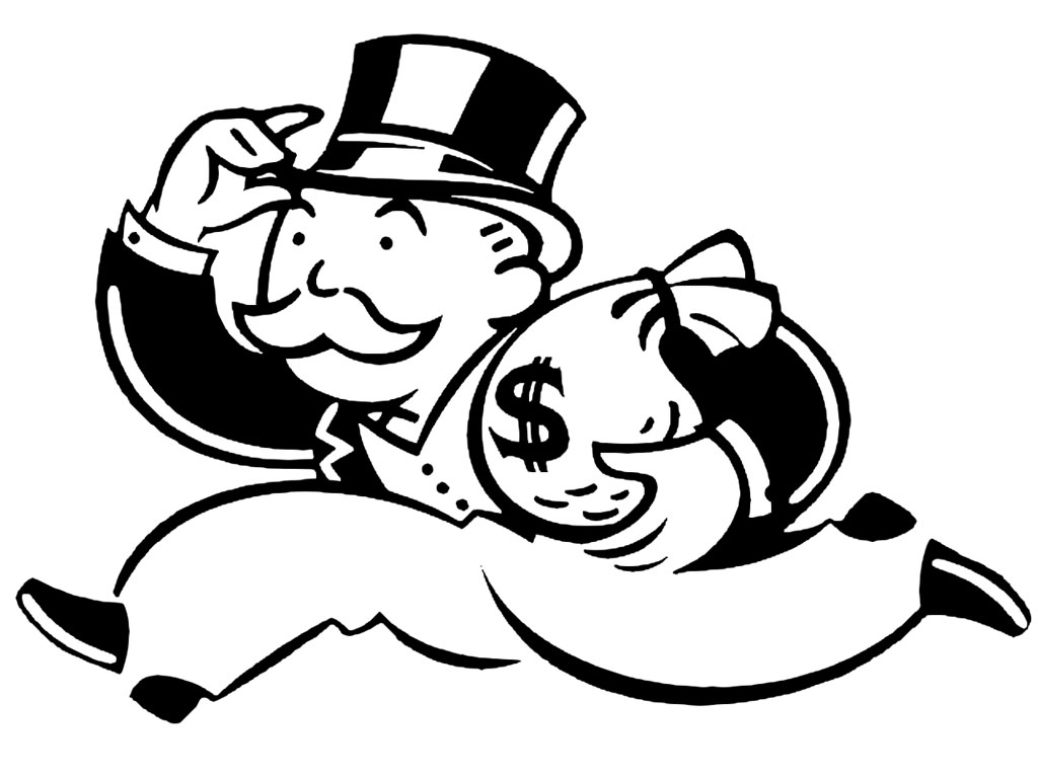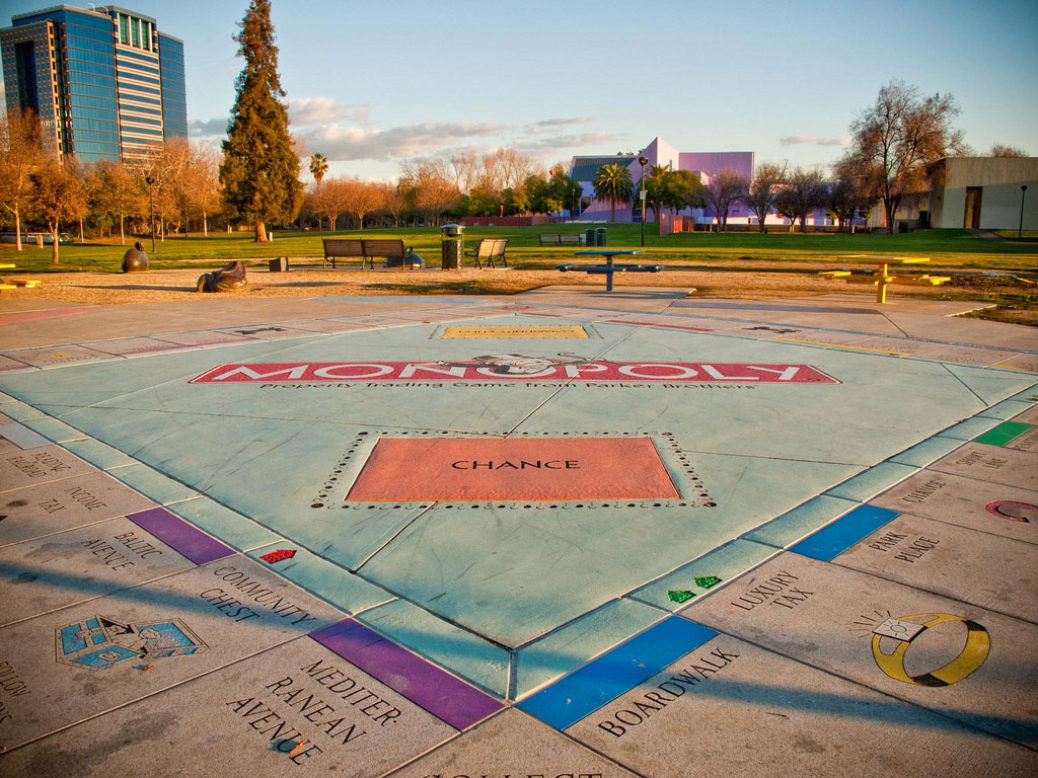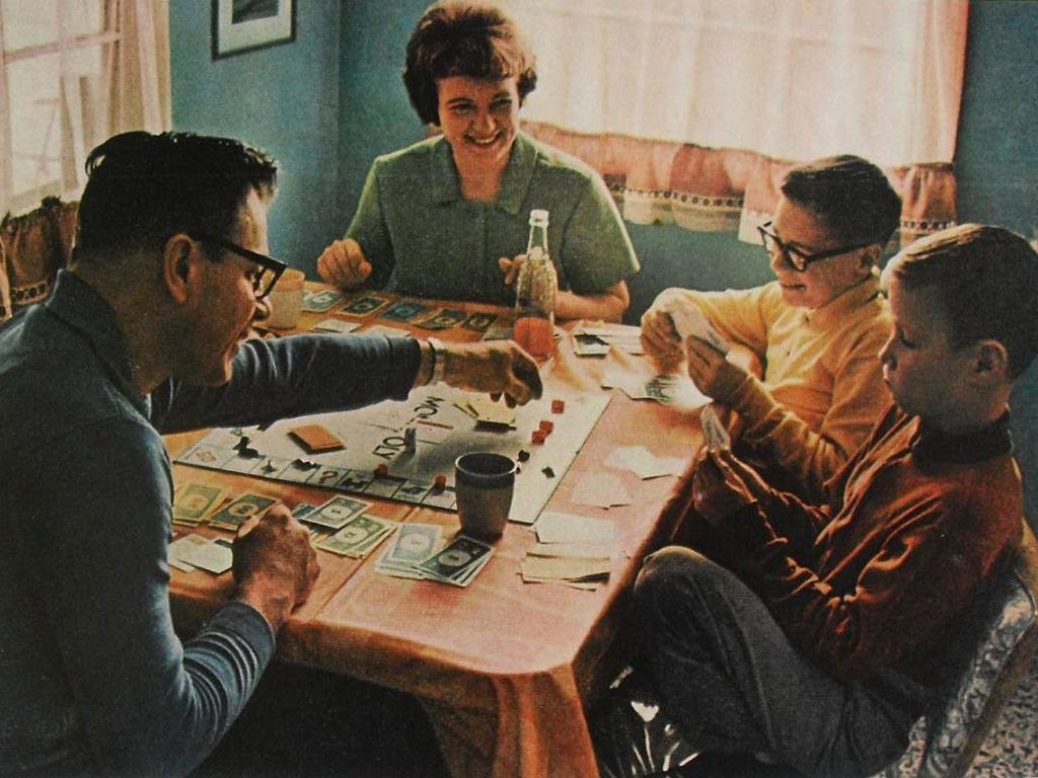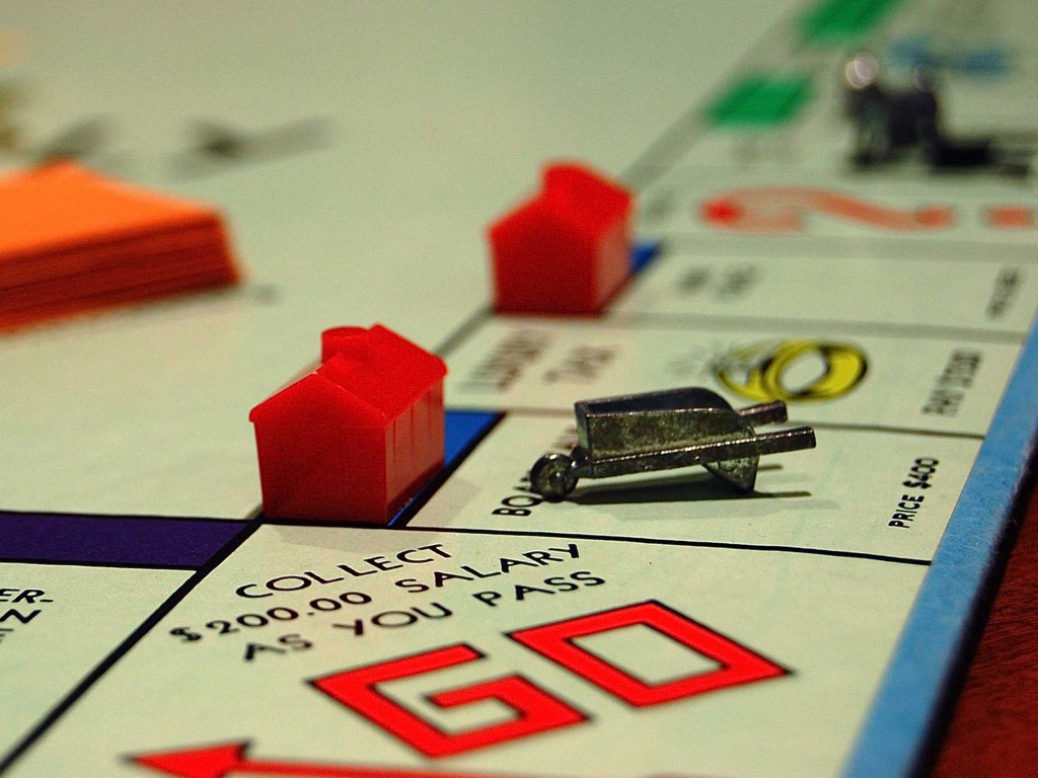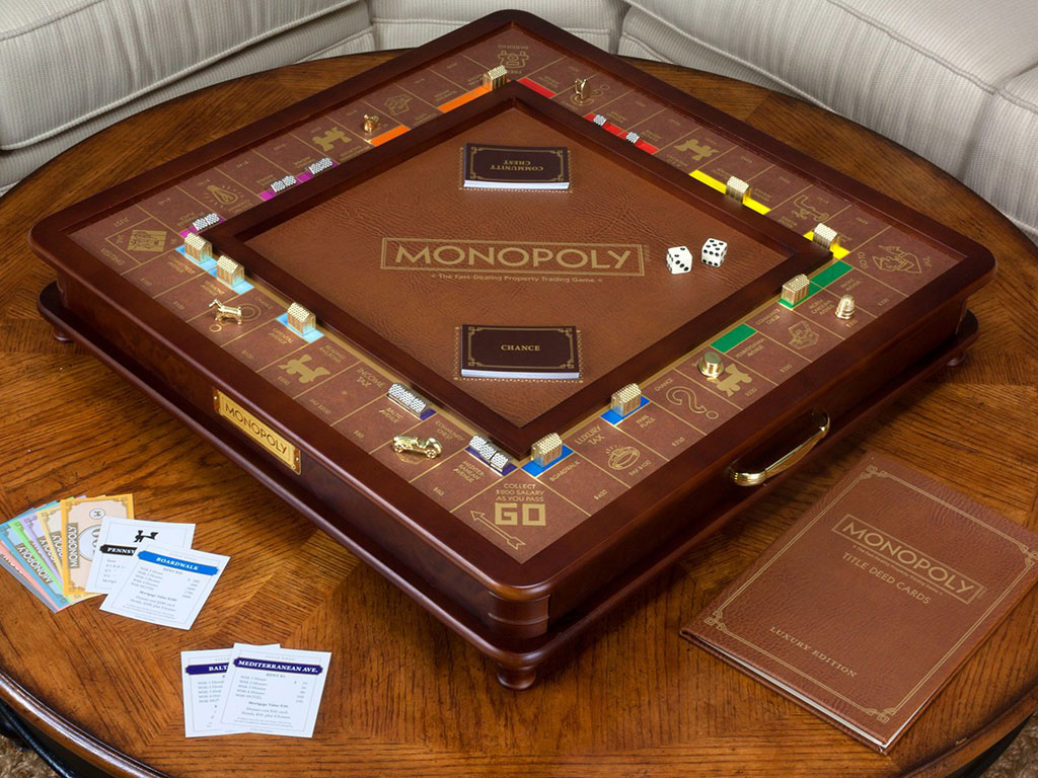Board games are a very popular universal pastime since antiquity (e.g. chess of an early form in Minoan Crete and ancient Persia, etc.). But, indubitably, the most famous board game, the most wide-spread and the one played all over the world, is none other than Monopoly.
USA, 1930s. The Great Depression leaves millions of unemployed and impoverished people as it sweeps through the country. In this financial environment, in 1935, the Parker Brothers and Charles Darrow patent a game very similar to today’s Monopoly, based on the concepts of older games that were already popular in the US. Gradually, they also patented Mr. Monopoly, the mustached gentleman in the topper hat, hovering over the second O of the game’s name, as well as in many Chance cards and Community Chest cards – often carrying sacks (full of money!).
Since its appearance, Monopoly has been enjoyed in many countries; has entered the Guinness World Records (1999); has been played by more than 750 million players; has been turned into a video game; while it has been calculated that the volume of Monopoly banknotes (of all its editions and printed copies) surpasses the volume of actual global printed money!
Who hasn’t played Monopoly at least once in their lives – most probably around the Christmas holidays, with relatives, friends or just their immediate family; sharing the ups and downs, the misfortunes and the unexpected turns of this game, which combines, in a magic manner, chance (the dice) with necessary strategics.
It is impressive how this game demonstrates that, in a “free market”, people can start with the same fortune yet, gradually, all the wealth is amassed in the hands of one person – merely through the mechanisms of basic market principles and a discreet “state” intervention! In this sense, the game is exceptionally educational, on a financial-historical level.
In this article, I will attempt a brief recording of the basic rules of Monopoly; I will also suggest some survival – and winning – strategies. I will confine myself to the basic edition, since the more than 30 variations of the game (the credit card edition, the Disney character edition, the personalized “My Monopoly” edition, even the anti-Monopoly edition where half the players follow more competitive terms against the “monopolizing” players, etc.) have very special rules that I will not examine.
The game is played by 2-8 players, all of which start with the same amount of money; each player rolls both dice and the others follow clockwise around the board. One of the players acts as the Banker. Depending on the space they land, players must do the following:
- If they land on a property space (street, railway station or public service) that no one owns, they can buy it (for the price listed); should they refuse to buy it, the property is auctioned.
- If they land on a Chance or Community Chest space, they pick up the relevant card from the respective deck and act accordingly.
- If they land on a Luxury Tax/Super Tax space, they have to pay a certain amount of money to the Bank.
- If they land on a Go To Jail space, they go to jail; they can leave either by rolling doubles or by paying a certain amount of money to the Bank. Players are also sent to jail by rolling three doubles (since rolling doubles means they play again) or if so instructed by a Chance/Community Chest card.
- If they pass from the Go space (starting point), they receive a certain amount of money from the Bank.
- If they land on another player’s property, they have to pay rent.
If a player buys a group of properties of the same color, they can either double the rent or, for a certain price, build houses and hotels – thus increasing even more the rent for players who land on these spaces.
If they find themselves short of cash, players may mortgage their properties to the Bank (but, by doing so, they cancel their right to collect rent or build on them). A property may be de-mortgaged with interest (usually +10%).
At any given time, players may buy and sell properties (even mortgaged ones) and buildings between themselves, at a commonly agreed price (however, they cannot do so with the Bank).
The winner is the player who, at a preset time, has amassed the biggest fortune (the sum of their cash+properties+buildings); or, in the event of successive bankruptcies, the one left standing.
So far, most of you must have recalled the rules of the game. But which are the “best practices” and strategies to increase the chances of winning for a player? Experience has indicated the following:
- At the beginning of the game, buy properties as fast as you can, until you have spent approximately 3/4 of your initial cash. For this purpose, it is worthwhile to participate in auctions, even if you end up buying properties at a higher price than the one noted on the space. An initially “indifferent” property (one that you cannot combine with others of the same color) can, in the future, be traded with another one (of greater use to you) in the context of a mutually profitable trade with another player.
- Particularly after buildings start to appear, make sure you always have the highest amount you may be asked to pay (the worst possible space you can land on); because, if you don’t, you will either have to mortgage your properties (thus losing the ability to collect rent) or sell your properties/buildings to the Bank (receiving only half of their buying price); you even run the risk of losing immediately (bankruptcy).
- To trade with, chose players who are at a worse position than yourself (for obvious reasons of trading practices). These players will be willing to sell useful (to you) properties at a relatively lower price.
- If there are many players (4 or above), collecting all cards of the same color is a difficult affair. In this case, risk 3-way trades (they are not prohibited).
- If you cannot afford to build, it is worth to temporarily mortgage an “irrelevant” property that is merely giving you rent, in order to build where you have collected all cards of the same color. The value of a building (through the multiplied rent you will be able to collect) will allow you to de-mortgage the property in the future and increase your chances for winning.
- Do not count on how often other players land on certain spaces. Here, the law of probability applies – to the letter. The fact that, until at a certain time, players frequently pass from a certain street does not mean they will keep doing so. Therefore, start building on the last (and usually most expensive) part of each color.
- After all properties have been bought, do not hesitate to stay in Jail for the maximum amount of time (3 rounds); this way, you can profit from your ability to trade (collecting rent, buying and selling, building, etc.) without running the risk to pay.
In summary, the above nexus of advise constitutes a prerequisite (yet not an insurance) for a good winning strategy. The defensive and phobic of trading player is not rewarded, except in (the very rare) case when they have established a significant precedent; otherwise, this is a recipe for losing. So be daring!
This is where I leave you, with the wish that playing Monopoly will exercise your insight and strategic thought, as well as contribute to the most affectionate gatherings with friends in the difficult years of the financial crisis. And, as a Monopoly veteran, I am always at your disposal for any further (more specialized) questions about the game and its strategics, through the BeautyGuard platform. Because, no matter how evolved electronic games become, the angst of a possible Community Chest card for general repairs on all your buildings cannot be matched!
current_Panos



